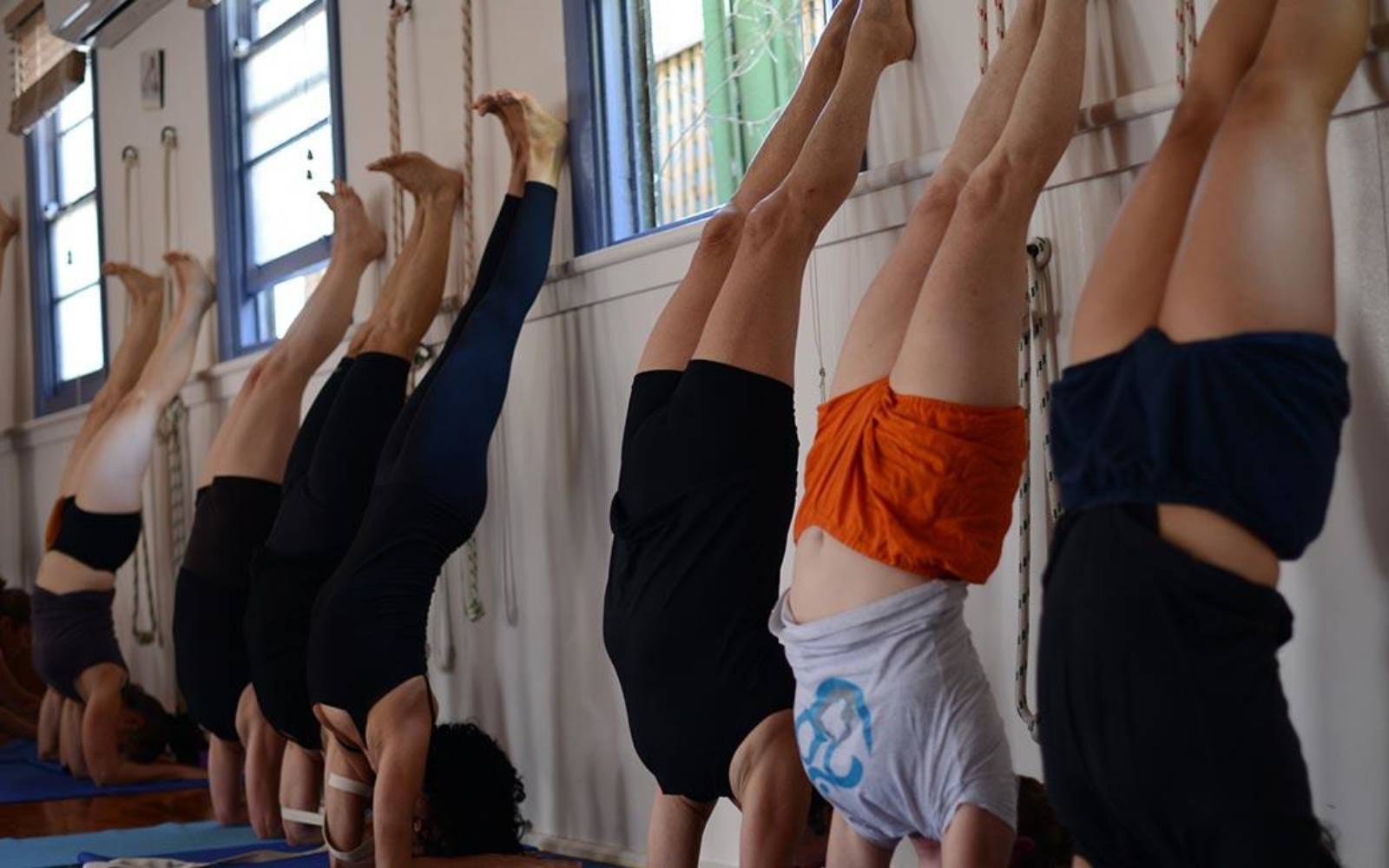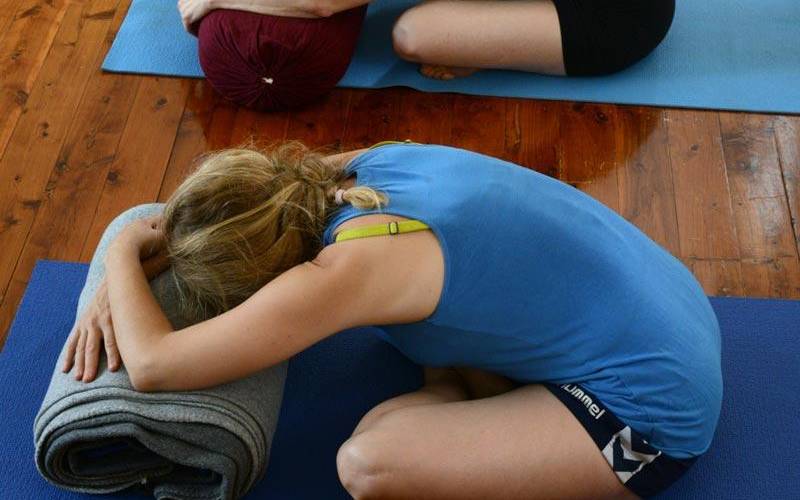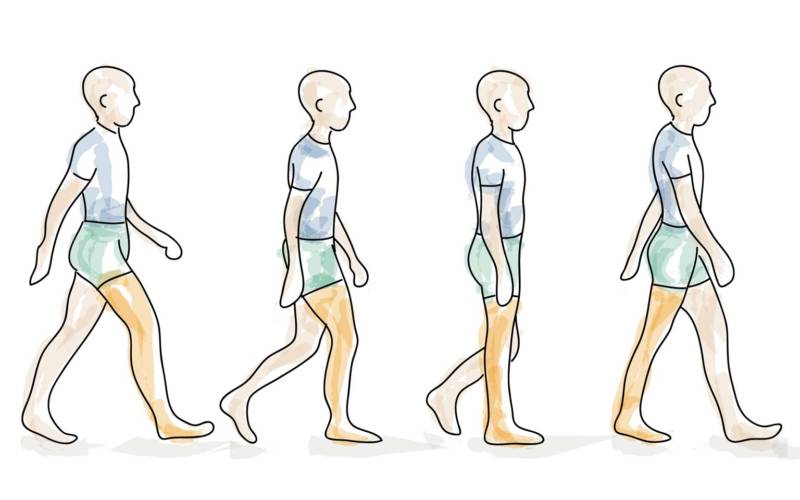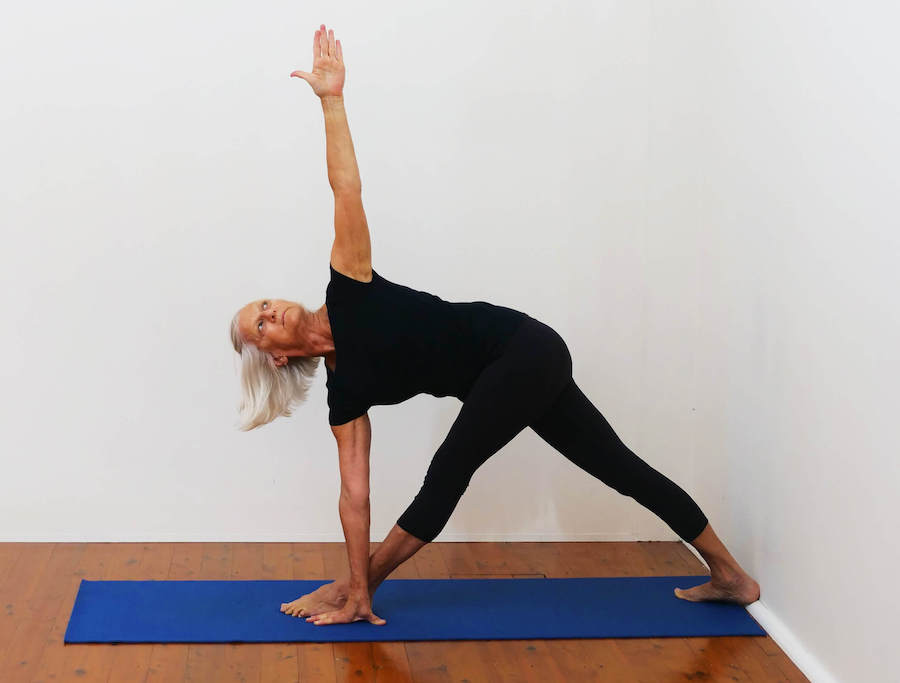Context
There are potential benefits of mind-body techniques on cognitive function because the techniques involve an active attentional or mindfulness component, but this has not been fully explored.
Objective
To determine the effect of yoga on cognitive function, fatigue, mood, and quality of life in seniors.
Design
Randomized, controlled trial comparing yoga, exercise, and wait-list control groups.
Participants
One hundred thirty-five generally healthy men and women aged 65-85 years.
Intervention
Participants were randomized to 6 months of Hatha yoga class, walking exercise class, or wait-list control. Subjects assigned to classes also were asked to practice at home.
Main Outcome Measures
Outcome assessments performed at baseline and after the 6-month period included a battery of cognitive measures focused on attention and alertness, the primary outcome measures being performance on the Stroop Test and a quantitative electroencephalogram (EEG) measure of alertness; SF-36 health-related quality of life; Profile of Mood States; Multi-Dimensional Fatigue Inventory; and physical measures related to the interventions.
Results
One hundred thirty-five subjects were recruited and randomized. Seventeen subjects did not finish the 6- month intervention. There were no effects from either of the active interventions on any of the cognitive and alertness outcome measures. The yoga intervention produced improvements in physical measures (e.g., timed 1-legged standing, forward flexibility) as well as a number of quality-of-life measures related to the sense of well-being and energy and fatigue compared to controls.
Conclusions:
There were no relative improvements in cognitive function among healthy seniors in the yoga or exercise group compared to the wait-list control group. Those in the yoga group showed significant improvement in quality-of-life and physical measures compared to exercise and wait-list control groups.
The paper has been published in Alt Therapy Health Med (2006) 12:40-47 This is part of the collection of studies published as the Mumbai Research Compilation. A collection of presentations made at the Light on Yoga Research Trust in collaboration with the Bombay Hospital Trust, Indian Medical Association, General Practitioners Association, and the Parkinson’s Disease and Movement Disorder Society. They organized the conference on the “Scientific evidence on the Therapeutic Efficacy of Iyengar Yoga’. It highlights research papers on Iyengar Yoga and its medical benefits. The objective of which being the dissemination of knowledge about the science of yoga in the medical setting. The conference was held on October 12, 2008.







